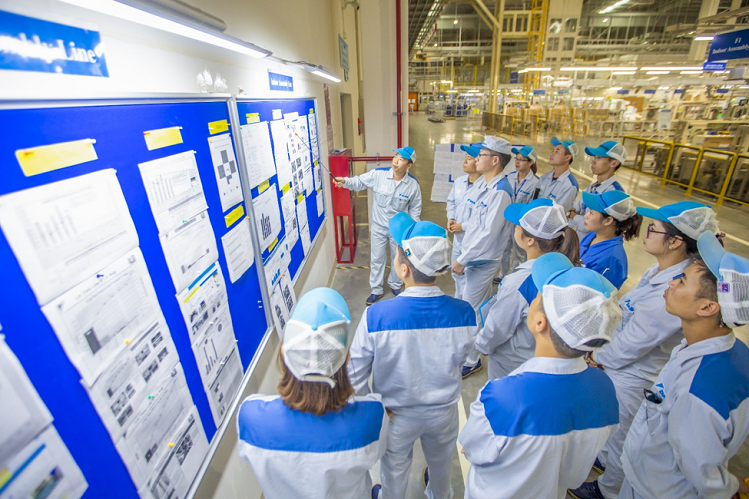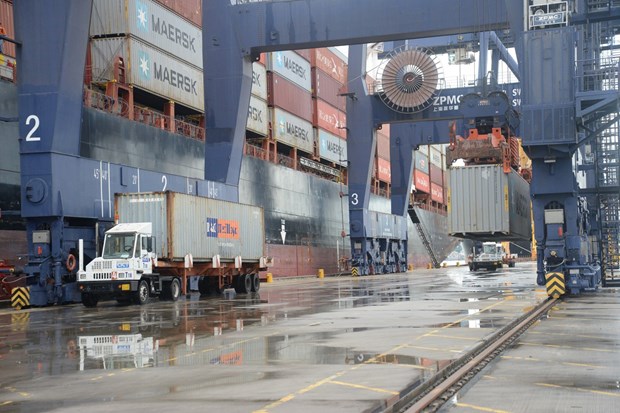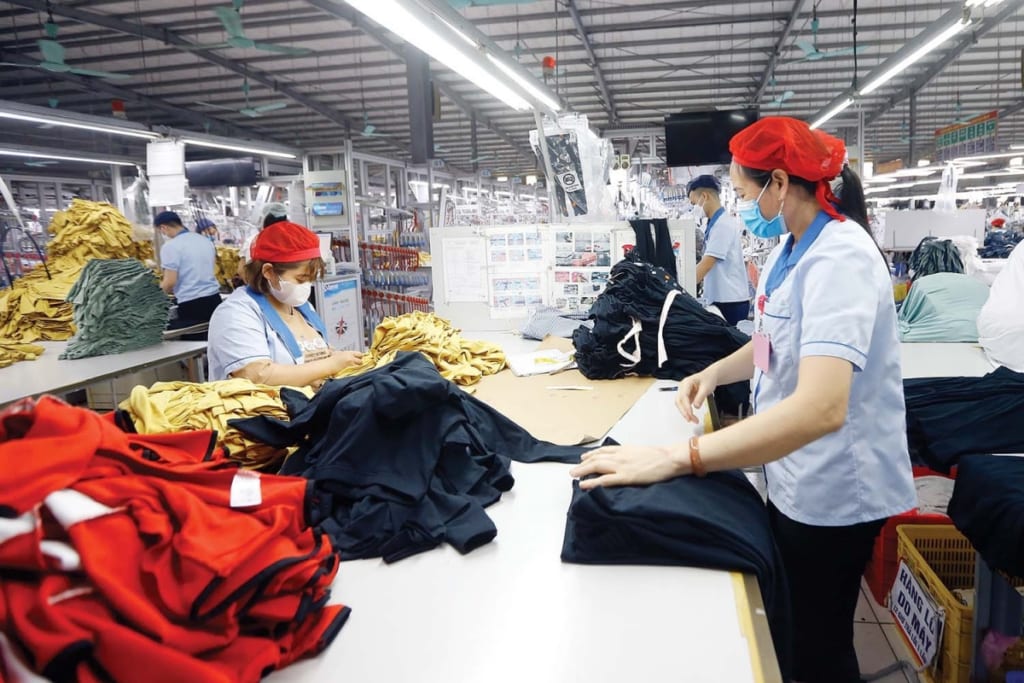
Introduction
Vietnam’s industrial prowess is a testament to its relentless workforce, particularly the uncelebrated champions—workers in Vietnamese factories. This article delves deep into the lives of these laborers, shedding light on their daily realities, adversities, and indispensable role in driving Vietnam’s economy to new heights.
Workers in Vietnamese Factories: The Backbone of Industry
Workers in Vietnamese factories, often overlooked yet undeniably pivotal, form the bedrock of Vietnam’s manufacturing prowess. They contribute significantly to the production of diverse goods, spanning from electronics and textiles to automobiles. Let’s delve into their journey:
A Day in the Life
The existence of a worker in a Vietnamese factory is characterized by dedication and perseverance. They toil relentlessly, often enduring demanding conditions to meet production targets and uphold the quality standards demanded by their employers. Their unwavering commitment is commendable.
Powering the Global Supply Chain
Workers in Vietnamese factories occupy a central position in the global supply chain. The establishment of manufacturing units by multinational corporations in Vietnam has not only spurred the nation’s economic growth but also created abundant opportunities for its labor force.
Evolution of Vietnam’s Manufacturing Sector
Vietnam’s manufacturing sector has undergone a profound transformation, shifting from labor-intensive industries to technologically advanced ones. Workers in Vietnamese factories have adapted admirably, acquiring fresh skills and knowledge to stay competitive on the global stage.
Challenges Confronting Factory Workers in Vietnam
While these workers drive Vietnam’s economic engine, they grapple with numerous challenges that necessitate immediate attention and resolution:
Occupational Hazards and Workplace Safety
Safety concerns within factories pose significant risks to factory workers in Vietnam. Robust safety protocols, comprehensive training, and the provision of safety equipment are imperative to mitigate hazards linked to machinery and chemical exposure.
Compensation and Labor Rights
Many workers in Vietnamese factories contend with inadequate wages that fail to reflect the true worth of their labor. Advocating for enhanced labor rights and equitable compensation is an urgent imperative.
Limited Access to Education and Skill Enhancement
Providing access to education and skill development opportunities can empower factory workers in Vietnam to pursue higher-paying roles and elevate their overall quality of life. Encouraging lifelong learning initiatives is paramount.
Striking a Work-Life Balance
Balancing work and personal life is a formidable challenge for factory workers who frequently grapple with extended working hours. Promoting flexible work arrangements and endorsing leisure activities can significantly enhance their well-being.
Success Stories of Factory Workers in Vietnam
Despite these challenges, several workers in Vietnamese factories have carved out a path to success, serving as beacons of inspiration and illustrating the industry’s potential for growth:
Ascending the Corporate Hierarchy
Numerous factory workers in Vietnam have risen through the corporate hierarchy, assuming supervisory and managerial roles. Their unwavering dedication and commitment have propelled them into leadership positions, where they make pivotal decisions.
Foraying into Entrepreneurship
A handful of factory workers have ventured into entrepreneurship, establishing enterprises in related industries. Their endeavors exemplify the entrepreneurial spirit that thrives within the labor force of Vietnamese factories.
Gaining Global Recognition
Factory workers in Vietnam have garnered international recognition for their craftsmanship and dedication. Their contributions to the global manufacturing industry have earned them respect and admiration on the global stage.
Frequently Asked Questions (FAQs)
Q: Do factory workers in Vietnam receive equitable compensation for their labor? A: Regrettably, many factory workers in Vietnam receive meager wages that do not accurately reflect the value of their contributions. Advocacy for improved labor standards and fair compensation is imperative.
Q: How do factory workers in Vietnam adapt to technological advancements in manufacturing? A: Factory workers in Vietnam exhibit adaptability and a fervent willingness to acquire new skills. They undergo training to embrace emerging technologies, ensuring their continued competitiveness.
Q: In which sectors do factory workers in Vietnam predominantly find employment? A: Factory workers in Vietnam are engaged across a multitude of sectors, including electronics, textiles, food processing, and automotive manufacturing.
Q: What measures can enhance the safety of factory workers in Vietnam? A: Enhancing workplace safety necessitates the implementation of stringent regulations, thorough training, and the provision of safety gear to safeguard factory workers in Vietnam from occupational hazards.
Q: Are there organizations or initiatives dedicated to supporting factory workers in Vietnam? A: Yes, numerous organizations and initiatives are committed to enhancing the lives of factory workers in Vietnam. They focus on issues ranging from labor rights to education and skill development.
Q: What lies ahead for factory workers in Vietnam in the future? A: The future holds promise for factory workers in Vietnam as the country continues to attract foreign investments, ushering in more employment opportunities and fostering economic growth.
Conclusion
Workers in Vietnamese factories are the unsung heroes powering Vietnam’s industrial advancement. Their dedication, resilience, and adaptability propel the nation’s economic engine. Despite confronting formidable challenges, their unwavering commitment ensures their enduring contribution to the global manufacturing sector. As Vietnam’s industries evolve, opportunities for these remarkable individuals also evolve, heralding a brighter future for the vanguards of progress.



